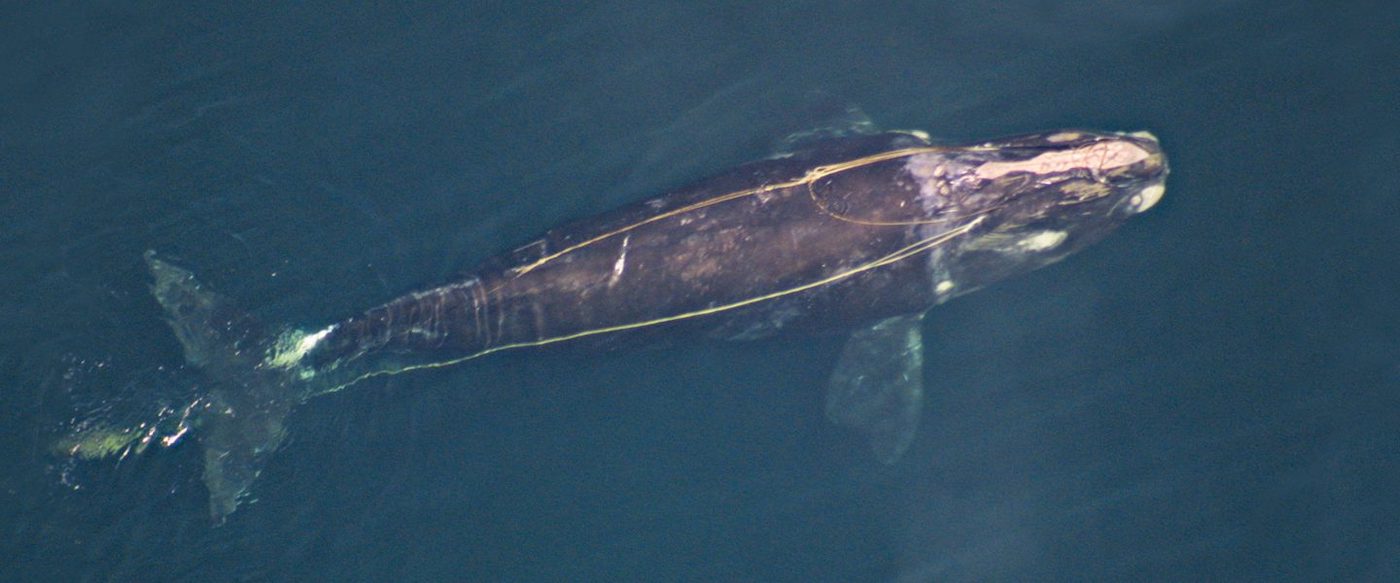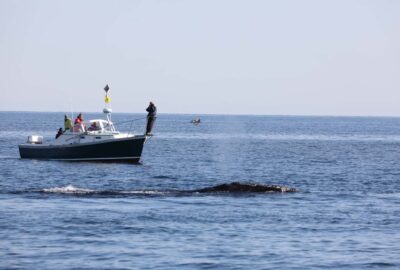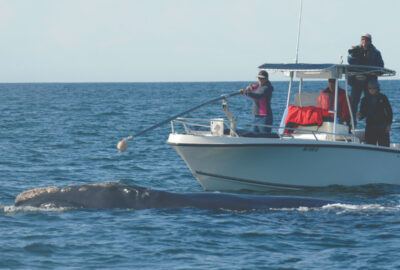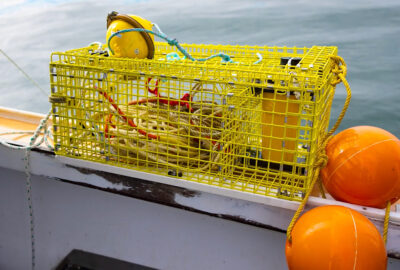Pioneering Feces Research Shows 'Sky-High' Stress Levels in Entangled Right Whales
For the first time, noninvasive research methods are making the examination of stress hormone levels in living right whales possible.
By New England Aquarium on Tuesday, December 05, 2017


Since 1999, researchers from the Anderson Cabot Center for Ocean Life at the New England Aquarium have been collecting fecal samples from endangered North Atlantic right whales. By examining the levels of glucocorticoid hormones in these samples, Senior Scientist Rosalind Rolland, D.V.M., and her team can determine the stress levels of living whales for the first time. New research published in the journal of Endangered Species Research is the culmination of these 15 years of research.
“For the first time, we can get hormone levels on not just dead, but living whales,” said Rolland.
Unlike blood samples, collecting fecal samples is noninvasive and causes minimal disturbance to the animals. From 1999 to 2014, the Anderson Cabot Center scientists examined fecal matter from 125 different right whales—113 healthy whales, six chronically entangled in fishing gear, one that was live-stranded, and five killed quickly by vessel strikes.
The robust samples allowed Rolland and her team to create a baseline of hormone levels in normal, healthy whales and compare those levels to the animals under stress. Within minutes of a stressful incident, the stress hormone is released into the whale’s body. Whales that died shortly after a stressful incident, such as from a vessel strike, did not have time to secrete the stress hormone into their feces. But the researchers found “sky-high hormone levels” in the whales that were entangled in fishing gear.

“These levels show stress from extreme physical trauma,” said Rolland. “It’s an animal welfare issue.”
The fecal samples can also help scientists determine a whale’s cause of death when a full necropsy can’t be completed. The level of stress hormones in the fecal matter can tell scientists if the whale died in a day or if it took weeks.
Rolland and her team put this tool into effect during summer 2017’s Unusual Mortality Event. It was a devastating summer for the highly endangered right whales, with 16 deaths due to vessel strikes and fishing gear entanglements. The total population numbers around only 450 animals. The Anderson Cabot Center team collected fecal samples for five of the dead whales, using its pioneering fecal hormone tests to determine timeline of death for the whales.
“This is one more tool in the toolbox for determining cause of death,” said Rolland.
This pioneering research garnered lots of media attention. Learn more by clicking on the links below:
The New York Times: Stress Hormones Soar in Whales Trapped by Fishing Lines
The Washington Post: These whales are stressed out. The proof is in their poop.
CBC News: Feces of entangled North Atlantic right whales show ‘extreme suffering’
Boston Globe: Traces of hormone allow scientists to detect stress in whales
Science Daily: Feces from entangled North Atlantic right whales reveals ‘sky-high’ stress levels




